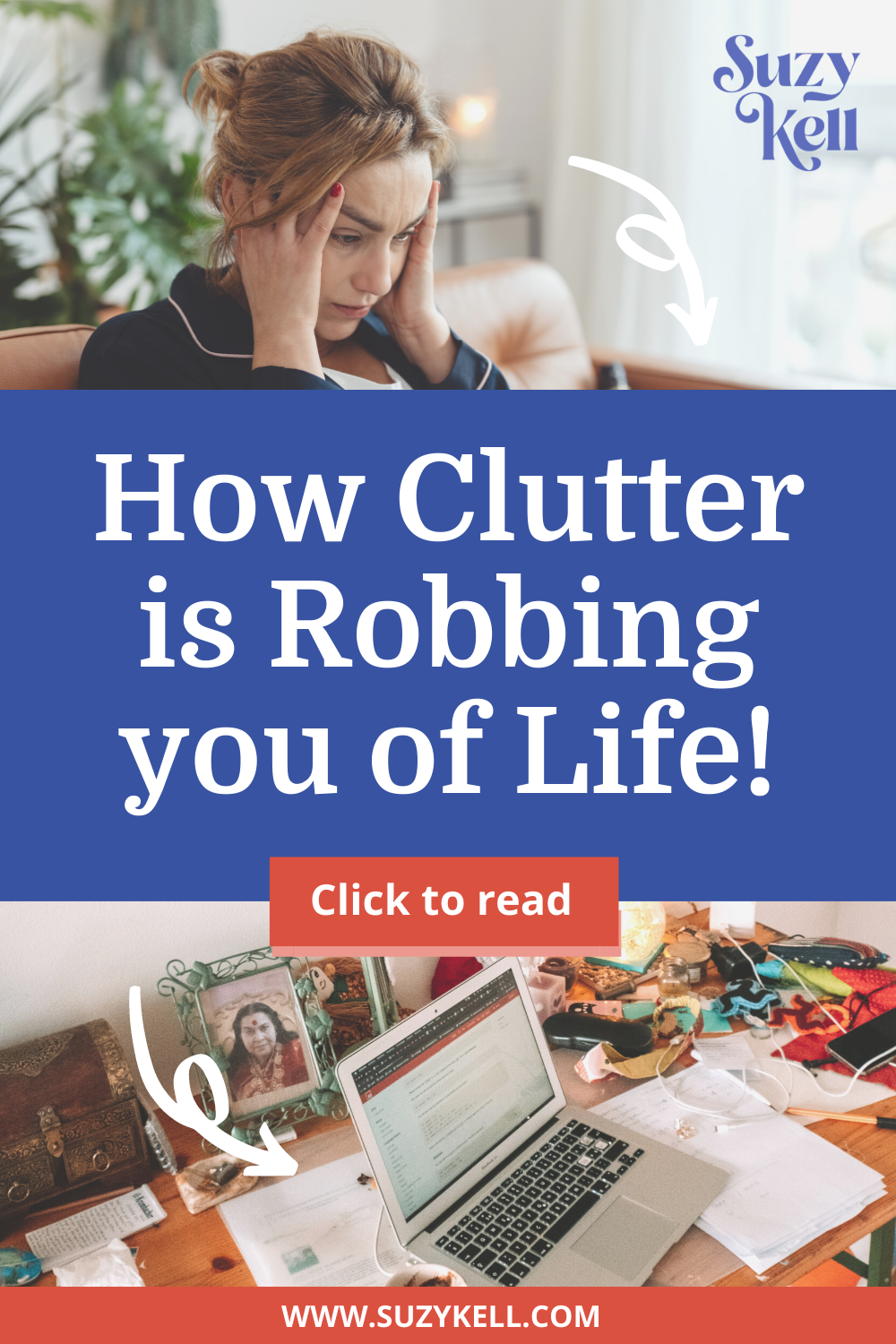13 Clutter Statistics that will Shock You
If Gollum was talking about the effects of clutter he would exclaim,
“They stole it from us. Sneaky little * clutter objects *.
Wicked, tricksy, false!”
What did the clutter steal though? His time, his energy, his peace of mind… you know, his precious.
In all seriousness though, while many of us put decluttering on the back burner for ‘someday’ (* hands up *, I have too!) - it has considerable and well-documented negative impacts on our personal well-being. Today I’ve gathered the data for you to see for yourself and hopefully get motivated to grab a bag and get to work.
I’ve got your back - this is a war we will wage together.
The upside is, that once you’ve got that jolt to the system the indoor warrior awakens to go to battle at home. This is one way I motivated myself to study for intimidating exams - I was going to show that test who was boss, armed with facts and figures.
Huzzah!!
Help me make friends!
Pin to Pinterest :)
13 Clutter Facts
1. Clutter steals your focus and concentration
In 2011, a study from the Princeton Neuroscience Institute found that having too much visual stimuli makes it difficult for your brain to focus and process information properly. When participants were presented with increasing numbers of objects in their visual field they actually competed for brain resources so things were missed out.
Think about the struggle of designing a presentation at a desk stacked with papers, dishes and a battle field of reminders on post-its.
My nerves.
2. Clutter robs you of time
Have you ever been in a hurry and just emptied a whole drawer out looking for your keys, or just some sellotape?
Photo by Kaboompics .com from Pexels
In 2017, Pixie conducted a ‘Lost and Found’ survey (1,700+ people) showing that the average American spent 2.5 days a year looking for lost stuff. The study also found that 60% of people had either been late to work or school because of lost items, followed by 49% who have missed appointments or meetings, and even 22% who’ve missed flights, trains, or bus rides. Yikes!
Photo by Andrea Piacquadio from Pexels
According to the National Soap and Detergent Association (USA), getting rid of clutter would eliminate 40% of housework in the average home, with 69% of participants saying they had areas of their home that they do not clean but felt they should (ACI National Cleaning Survey, 2019).
Photo by Karolina Grabowska from Pexels
Are there rooms in your house you can’t clean because there is too much stuff in the way?
It’s hard!
3. Clutter is the thief of peace
One of my clients described how she felt before we worked on the room for her son (he was co-sleeping with mum and dad at the time)
“I couldn't even walk into our "office" aka 'dumping ground for things with no home' without feeling overwhelmed to the point of nausea!”
Turns out, she’s not the only one stressed to the max by having a lot of stuff around. Saxbe & Repetti (2010) studied dual-income married couples living in the Los Angeles area who had at least one school-aged child at home. The spouses who perceived themselves as having a cluttered home or a home that needed work were recorded as having much higher levels of cortisol throughout the day, measured with mouth-swab saliva samples.
Photo by Alex Green from Pexels
Ferrari & Roster (2018) similarly found that - “Clutter problems led to a significant decrease in satisfaction with life among older adults. Findings suggest that general procrastination tendencies may enable a lifelong pattern of responses to one’s environment that become increasingly maladaptive throughout the life cycle - simultaneously delaying disposal decisions.”
Photo by Karolina Grabowska from Pexels
In other words, the problem builds up over time and so does the frustration that comes with it.
4. Clutter threatens your health
Clutter in your home has been linked to unhealthy eating - Vatarian et al. (2017). This Australian-U.S. study showed that people will actually eat more cookies and snacks if the environment in which they’re offered a choice of foods is chaotic, and they’re led to feel stressed.
Photo by Sara Santos from Pexels
When the experimental testing kitchen was disorganised and messy and the participants were put in a low self-control mind set, students in the Cornell University lab ate twice as many cookies as those in a standard, non-chaotic kitchen. In other words, you’ll reach more for the sweets in a cluttered setting when you’re feeling out of control! This explains a lot…
Precariously organised things also provide a tripping risk - did you know that the typical British 10-year-old owns 238 toys but plays with just 12 daily (The Telegraph)?
The Health Service Executive in Ireland reported 35,187 falls in 2018 which is a leading cause of death for adults aged 65+ and has a full list of recommendations for keeping homes clear of fall hazards.
Photo by Andrea Piacquadio from Pexels
Items collecting dust can also be a major problem, particularly for those with chronic asthma - read more about it from the Canadian Centre for Occupational Health and Safety here.
How well do do you sleep next to piles of books and clothes that are in-between ‘clean and hung up’ and ‘in the laundry basket dirty’? Thatcher (2015) found that for people with hoarding disorder their stuff had a ‘dose response’ on sleep.
This meant that the more clutter they had, the more likely they were to have a sleep disorder. The effects of bad sleep are far reaching, impacting how snappy you are with your kids, your work performance let alone the onset of major diseases, mental health issues and weight gain.
Ok, I hope you are not totally freaked out now! Take it step by step to conquer your chaos… because now you know your health depends on it.
Here are some posts on the blog to help you get started:
You can do this, I know it
Suzy xx


















